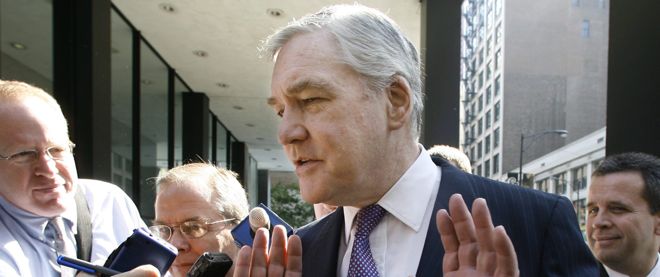Conrad Black: from sentencing to today
Understanding “Honest Services” and how Black got here in the first place
Share

The Supreme Court ruled Thursday that the “Honest Services” statute—a favorite of white-collar crime prosecutors— was interpreted too broadly in convicting Conrad Black, as well as former Enron chief executive Jeffrey Skilling. However, the ruling did not require their convictions to be overturned. In both cases, however, the justices left the ultimate resolution to the appeals courts. So where does this leave Black? We’ve compiled some links (more to come) that explain the Honest Services law and how this law was applied to Black’s case.
Shooting down the honesty policy (Canadian Business)
Conrad Black’s appeal may change U.S. law (National Post)
What Are Honest Services? (Huffington Post)
The United States vs. Conrad Black—The Maclean’s guide to the white-collar trial of the century
Mark Steyn live blog—the Conrad Black trial from opening arguments to sentencing
Why it’s time to set Conrad Black free—Rehab is mostly irrelevant for corporate fraud
Clash of the titans—Peter C. Newman on how the Aspers came to blows with press baron Conrad Black
A legal victory for Conrad Black—Former press baron’s libel suit against Richard Breeden can continue, in Ontario